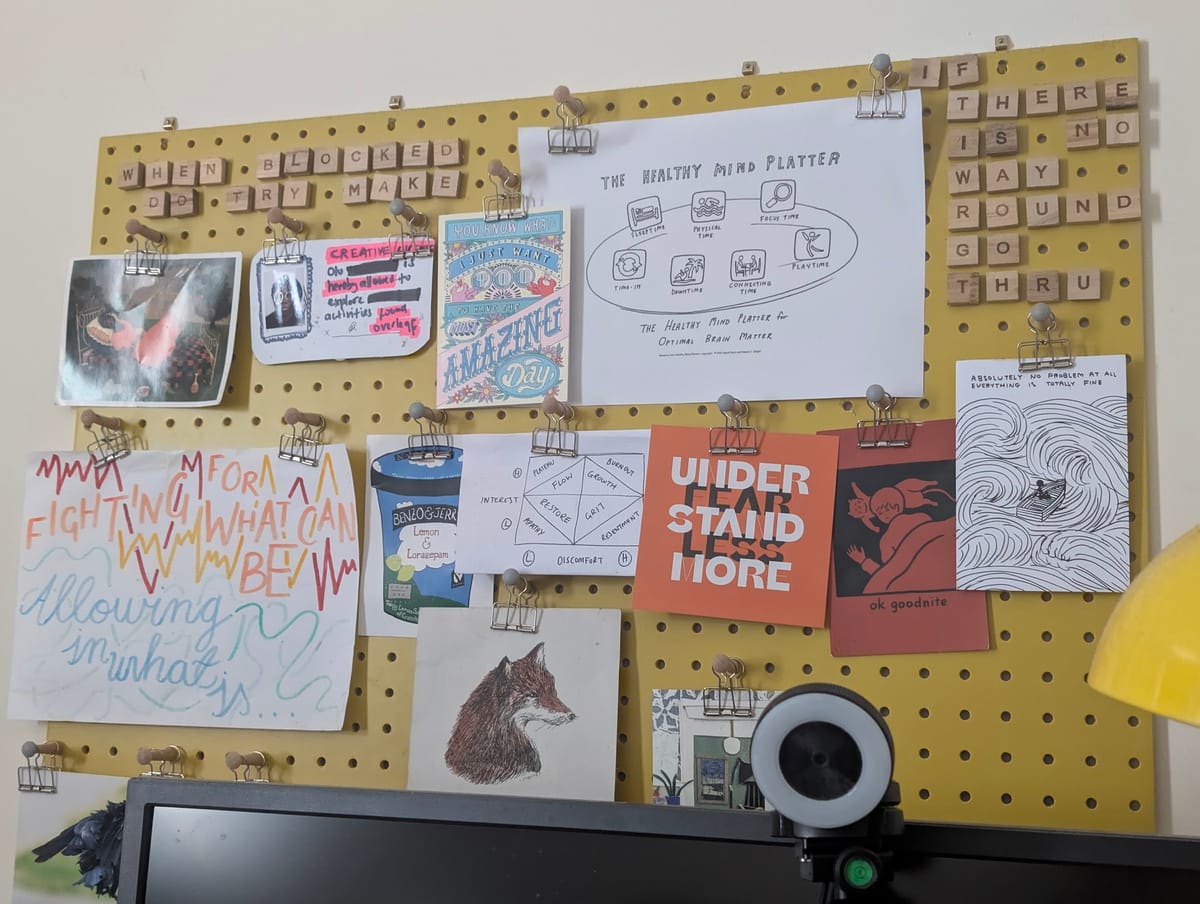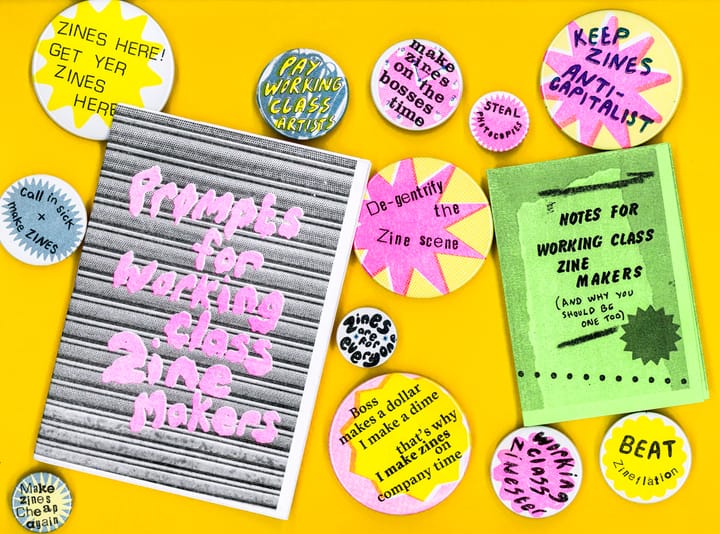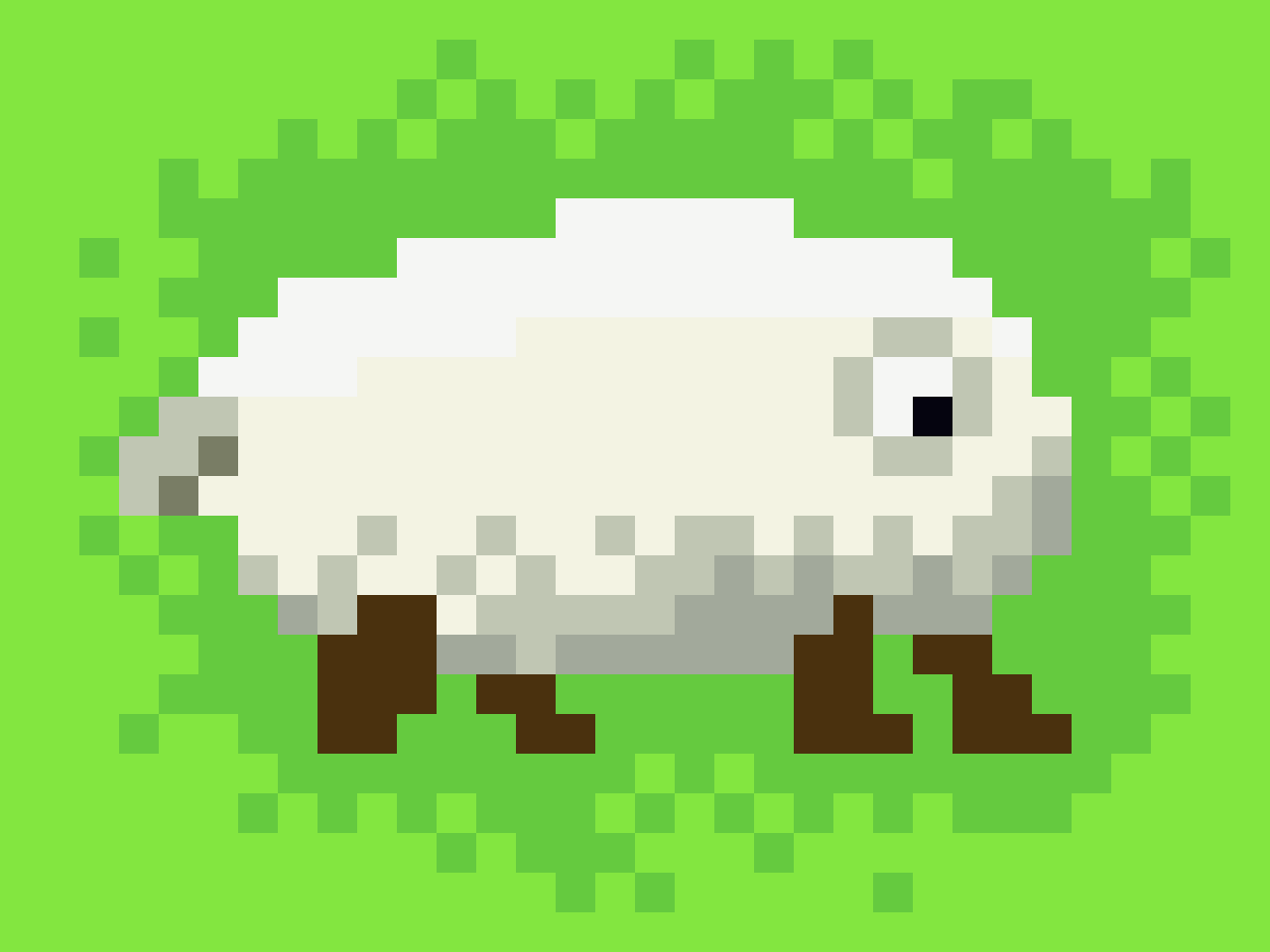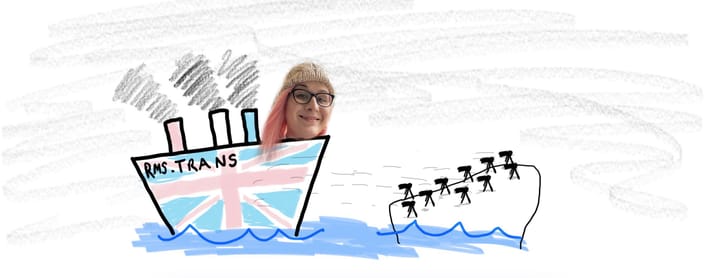Hi, I'm Olu!
Meet Olu: developer, writer, sewer, apprendre français-er, and internet enjoyer. Read about their experiences trying to find a place in the social enterprise, charity, non-profit and social enterprise worlds, what bought them to GFSC, and their surprising optimism for technology despite it all.

I am a full stack developer for local government in the UK, a writer, and a content creator. I also like to sew, to read, apprendre français, and am extremely online.
For the purposes of this intro post, I was trying to tell a coherent story of all the political and technological growth I've experienced in my entire life. It turns out this is hard!
I have settled for telling you about a few of my early experiences, a look to university, what got me into tech itself, and where I am today.
To begin at the beginning, I was pretty interested from the first time I saw a computer. I did the final installation steps on the NTL dial-up as a small child and immediately found a way to play games on a connection that timed out every 20 minutes (Cartoon Network's Summer Resort has my heart). I took apart a few broken household appliances in the hope of being able to put them together again: a CD player, a robot dog, and a clock radio.
I find it ‘weird’ — obvious in the conditions we live in, but sad and hard to sit with – that despite this early interest I wasn't really encouraged, or even had it suggested to me that computers were a thing people could build jobs around, and that maybe I could be those people. I mostly hoped I could be a writer and so I worked towards that until university, where the naff (in terms of both politics and writing) and cut-throat world of student newspapers doused any enthusiasm I had for journalism.
Simultaneously, I tried to get more involved in student groups, namely social enterprises, charities and student politics.
The social enterprise approach was to create not-for-profit businesses to solve real social problems in the UK but also generally abroad, with competition embedded between different universities. I found this hard to reconcile with the magnitude of the problems we were grappling with. Why were a few random students supplying micro-loans (to prevent further poverty and encourage entrepreneurship) and solar-powered lights (to prevent lung and other health damage, and prevent poverty from buying and burning kerosene) if it's evidence-based and vitally important? The vibe of “this entire thing is a sandpit for us to test out business ideas” didn't sit well with me to say the least.
The charities had other issues. Big talk about inclusion and changing the world mixed with limited or no impact on it, beyond the locus of issues that students could reasonably control, and, in the case of my campus at the time, could get other students to care about. I struggled with the incessant team building exercises, and away days that seemed to be more about raising our enthusiasm for the project than any actual outcomes. I'd be more in favour of this now if they were honest about it, but it annoyed me at the time.
I was most heavily involved in ‘meta-charities’: mental health for students and another around student volunteering. The mental health side, whilst deeply impactful on my politics and outlook on the world ever since, showed me how little funding and care is put into this vital work. As a mad person I couldn't see myself as a person who would be taken seriously, outside the ‘lived experience’ or ‘service user’ lens. The volunteering charity gave me a lot of what I can only describe as ‘class whiplash’. One one hand, people were saying how important it was to encourage volunteering, while on the other our parent charity in Oxford let slip that certain populations were not the sort they ‘reached out’ to due to them being ‘hard to reach’, aka ‘urban’ and ‘scary’.
All this was enough for me not to consider charity work as my path after university.
Student politics I always found difficult. Student union elections seemed at best a giant popularity contest. Whoever had the most friends on Facebook won by a wide margin. I looked at my numbers and decided I definitely wasn't cut out to become a politician.
Alongside all this I was recommended to try Codecademy by a housemate in first year, which got me into learning to code, albeit excruciatingly slowly, through their platform and other online resources. I remember a friend telling me if I couldn't do the first Project Euler puzzle at this point, maybe I wasn't cut out for this, probably in the third year of uni. For some reason, I kept going and ended up doing a bootcamp after uni, which was enough to get my first coding job.
Fast forward ten years-ish and I'm still here, still coding in local government, increasingly galvanised in my hopes for the dismantling of Big Tech, and for digital commons to actually exist, built by and for communities who use and live and work and are joyful in them. I'm doing a lot of ‘content’ over on my blog and jumped at the chance to join a collective working on the same goals. I'm looking forward to writing more and meeting more people interested in these goals.
What's your biggest hope for technology? Have you always loved computers, do you have a love/hate relationship, or are you reading this while somehow being a dyed in the wool hater who thinks it's important to stay abreast of what can be done to reduce their influence? Please let me know!




Comments ()